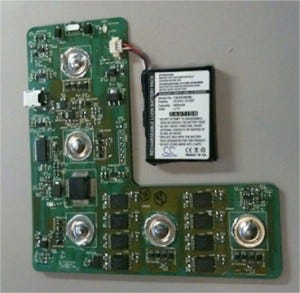March 18, 2010

mit-chip
A wearable ECG monitor developed by MIT researchers is based on an ultra-low-power chip. (Photo by Eric Winokur)
MIT News reports that electrical engineers in the Microsystems Technology Laboratory (MTL) at the Massachusetts Institute of Technology (MIT) are developing a low-power chip for use in wearable and implantable medical devices.Developed under director Anantha Chandrakasan, the ultra-low-power chip could interface with biomedical sensors, signal processing, energy processing, and communications, playing a key role in the development of small wearable and implantable medical monitors. The team hopes to use this chip in devices for monitoring vital signs, including heart rate, breathing rate, blood pressure, pulse oxygenation, and temperature.Currently, the team is developing a monitor that measures and records electrocardiograms (ECGs). While heart attack patients and patients with heart problems often wear a Holter monitor to track electrical activity in the central nervous system, such bulky devices consist of several electrodes that stick to the chest and a battery pack carried at the hip. These cumbersome systems also lack the memory required for storing large amounts of data. In contrast, the new MIT monitor is an L-shaped device that sticks to the chest and can be worn comfortably without protruding wires. Approximately 4 in. long, it can store up to two weeks of data and requires only 2 mW of power.At present, heart monitoring can be performed only after ECG data have been downloaded from the chip. Eventually, the MTL team hopes to incorporate the algorithm required to download these data into the chip itself. In addition, they hope to build chips that can harvest energy from the patient's body, eliminating the need for a battery.For more information on this technology, see "Revolutionizing Medicine, One Chip at a Time" at MIT News.
You May Also Like


